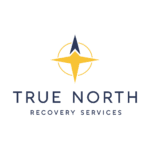The shift to remote work has fundamentally transformed the modern workplace, bringing unprecedented flexibility and convenience to millions of workers worldwide. However, this transformation has also introduced unique challenges for individuals in recovery and those at risk of developing substance use disorders. The isolation, blurred boundaries between personal and professional life, and reduced supervision inherent in remote work environments can create perfect storms for addiction relapse or initial substance abuse. Understanding these risks and implementing effective strategies is crucial for maintaining both professional productivity and personal sobriety in our increasingly digital work landscape.
The Hidden Dangers of Working From Home
Isolation and Mental Health Challenges
Remote work often leads to prolonged periods of isolation, which can significantly impact mental health and increase vulnerability to addiction. Without the natural social interactions that occur in traditional office settings, remote workers may experience:
- Increased loneliness and depression
- Reduced accountability and oversight
- Lack of structured social support
- Heightened anxiety about job security
Research shows that the isolation accompanying remote work creates a double-edged sword situation, offering focus while leaving individuals vulnerable to loneliness, which can ultimately trigger substance use as a coping mechanism.
Blurred Work-Life Boundaries
One of the most significant challenges remote workers face is maintaining clear boundaries between work and personal life. This blurring can lead to:
- Extended working hours without clear endpoints
- Difficulty “switching off” from work stress
- Increased burnout and chronic stress
- Easy access to substances during work hours
Statistics: The Scope of the Problem
The data surrounding remote work and substance abuse reveals concerning trends:
| Statistic | Source/Finding |
|---|---|
| 1 in 5 remote workers | Admitted to using alcohol, marijuana, or other substances during work hours (Sierra Tucson, 2021) |
| Increased risk | Remote employees face a higher substance abuse risk compared to office workers |
| Performance impact | 1 in 5 American workers report that substance use has impacted their work performance |
Why Are Remote Workers More Vulnerable?
Lack of Structure and Routine
- Absence of commute and office rituals
- Flexible schedules that may lack boundaries
- Reduced external accountability
Easy Access to Substances
- Home environments with readily available alcohol
- No physical barriers to substance use
- Reduced fear of immediate detection
Stress and Coping Mechanisms
- Increased work-related stress without traditional outlets
- Limited access to workplace wellness resources
- Reliance on unhealthy coping strategies
Common Questions About Remote Work and Addiction
Does remote work increase addiction risk?
Yes, research indicates that remote work can increase addiction risk due to factors like isolation, reduced supervision, blurred work-life boundaries, and easier access to substances. The lack of structured environment and social accountability creates conditions that may trigger or worsen addictive behaviors.
How can remote workers in recovery stay sober?
Remote workers in recovery can maintain sobriety by establishing strict daily routines, creating dedicated workspace boundaries, participating in virtual support groups, maintaining regular check-ins with sponsors or therapists, and removing substances from their home environment.
What are the warning signs of substance abuse in remote workers?
Warning signs include decreased work performance, missed meetings or deadlines, appearing intoxicated during video calls, erratic communication patterns, social withdrawal from team activities, and frequent technical issues that may mask impairment.
Can employers help prevent addiction in remote workers?
Employers can help by providing mental health resources, offering flexible work arrangements, conducting regular check-ins, creating virtual social opportunities, providing access to employee assistance programs, and training managers to recognize warning signs of substance abuse.
The Impact on Different Types of Addiction
Alcohol Use Disorder and Remote Work
Alcohol remains the most commonly abused substance among remote workers due to:
- Social acceptability and easy availability
- “Day drinking” becoming normalized
- Using alcohol to manage work stress
- Liquid lunches and virtual happy hours
Prescription Drug Abuse
The isolation and stress of remote work can lead to:
- Increased reliance on anxiety medications
- Abuse of prescription stimulants for productivity
- Self-medication for depression and anxiety
- Difficulty monitoring medication use without external oversight
Digital and Behavioral Addictions
Remote work environments can also foster:
- Internet and social media addiction
- Gaming addiction during work hours
- Shopping addiction through online platforms
- Workaholism and burnout cycles
Strategies for Prevention and Recovery
For Individuals in Recovery
Create Structure and Boundaries
- Establish consistent wake-up and work start times
- Designate specific workspace areas
- Set clear end-of-workday rituals
- Maintain regular meal and break schedules
Build Support Networks
- Join virtual recovery support groups
- Schedule regular check-ins with sponsors
- Maintain connection with recovery communities
- Participate in online therapy sessions
Environmental Modifications
- Remove all substances from the home workspace
- Install monitoring software if helpful
- Create accountability partnerships
- Establish emergency contact protocols
For Employers and HR Teams
Policy Development
- Create clear remote work substance abuse policies
- Establish confidential reporting mechanisms
- Develop intervention protocols
- Provide addiction awareness training
Support Resources
- Offer Employee Assistance Programs (EAPs)
- Provide access to virtual counseling services
- Create peer support networks
- Implement wellness programs
Early Detection and Intervention
- Train managers to recognize warning signs
- Approach employees with compassion and sensitivity when addressing substance abuse concerns
- Provide resources for professional help
- Maintain confidentiality and support
Technology Solutions for Recovery Support
Virtual Recovery Tools
Modern technology offers numerous solutions for remote workers in recovery:
- Telehealth therapy sessions
- Recovery mobile apps and tracking tools
- Virtual support group platforms
- Online intensive outpatient programs
Monitoring and Accountability Software
- Time tracking applications
- Website and application blocking tools
- Video check-in systems
- Productivity monitoring (when appropriate)
The Role of Mental Health in Remote Work Recovery
Addressing Underlying Issues
Remote work addiction often stems from underlying mental health conditions:
- Depression and anxiety disorders
- Attention deficit disorders
- Trauma and PTSD
- Personality disorders
Integrated Treatment Approaches
Effective recovery requires addressing both addiction and mental health simultaneously through:
- Dual diagnosis treatment programs
- Cognitive behavioral therapy (CBT)
- Mindfulness and stress reduction techniques
- Medication management when appropriate
Building Resilience in Remote Work Environments
Personal Resilience Strategies
Physical Health Maintenance
- Regular exercise and movement breaks
- Proper nutrition and hydration
- Adequate sleep hygiene
- Sunlight exposure and outdoor time
Mental Health Practices
- Daily meditation or mindfulness
- Stress management techniques
- Regular social connection
- Hobby engagement and creativity
Professional Development
- Skill building and learning opportunities
- Career goal setting and planning
- Professional networking and mentorship
- Work-life balance education
Organizational Resilience Building
Culture Development
- Promote open communication about mental health
- Create psychologically safe work environments
- Encourage work-life balance
- Recognize and reward healthy behaviors
Resource Provision
- Mental health days and flexible time off
- Wellness stipends and programs
- Professional development opportunities
- Team building and social activities
Recovery Support at True North Recovery Services
At True North Recovery Services, we understand the unique challenges that remote workers face in maintaining their recovery. Our comprehensive outpatient addiction treatment programs are specifically designed to accommodate the needs of working professionals, including those in remote work environments. We offer flexible scheduling, telehealth options, and specialized support for individuals navigating the intersection of career demands and recovery goals. Our holistic approach combines evidence-based treatments with practical strategies for maintaining sobriety while working from home, ensuring that our clients can build successful careers without compromising their recovery journey.
Future Considerations and Trends
Evolving Workplace Policies
As organizations recognize the connection between remote work and addiction risk, we can expect to see:
- Enhanced mental health benefits
- Mandatory wellness training programs
- Improved work-life balance policies
- Investment in virtual support technologies
Treatment Innovation
The treatment industry is adapting with:
- Specialized remote worker recovery programs
- Workplace-integrated treatment options
- Advanced telehealth platforms
- AI-powered monitoring and support tools
Finding Balance in the Remote Work Era
The relationship between remote work and addiction risk represents one of the most significant occupational health challenges of our time. While remote work offers unprecedented flexibility and opportunities, it also requires intentional strategies to maintain mental health and prevent addiction relapse.
Success in remote work recovery requires a multifaceted approach involving individual responsibility, employer support, professional treatment resources, and community connection. By understanding the risks, implementing proven strategies, and seeking appropriate support when needed, remote workers can maintain both their professional success and personal recovery.
The key lies in creating structure within flexibility, building connection despite distance, and maintaining accountability in environments with reduced oversight. As our work landscape continues to evolve, so too must our approaches to supporting the health and well-being of remote workers in recovery.
Remember, seeking help is a sign of strength, not weakness. If you or someone you know is struggling with substance abuse while working remotely, professional support is available and effective. Recovery is possible, even in the challenging landscape of remote work.


